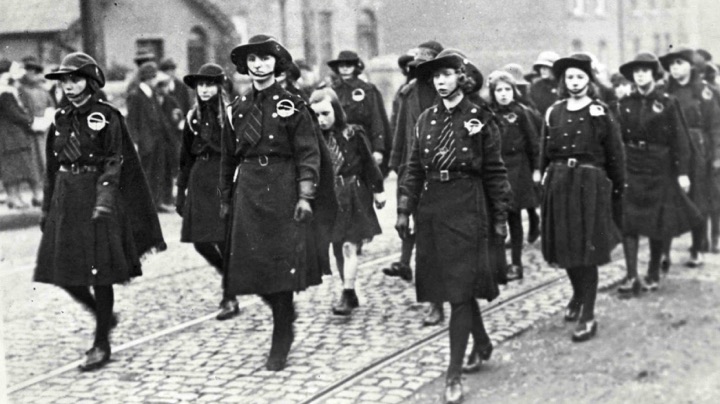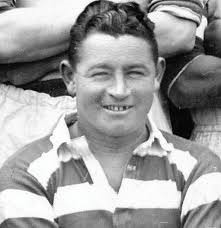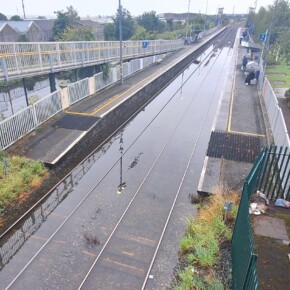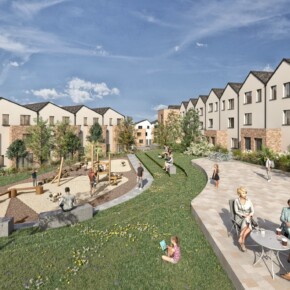Dublin Festival of History announces its 2022 programme
Padraig Conlon 30 Aug 2022
Why were women prevented from playing a role in the Irish Civil War and forced to return to the home?
Are the Celts a misnomer, if the word for Celts first appeared in Greek and applied to aliens or barbarians?
Was there a conspiracy that prevented the re-election of Dublin’s first female Councillor?
What intrigue surrounds the story of Muhammad Ali’s fight in Croke Park 50 years ago?
These questions, and many more, will be explored and discussed at this year’s Dublin Festival of History, set to take place from Monday, September 26 to Sunday, October 16.
The festival, an initiative of Dublin City Council, was officially launched at DIAS Dunsink Observatory by the Lord Mayor of Dublin Caroline Conroy.
Dublin Festival of History, organised by Dublin City Libraries in partnership with Dublin City Council Culture Company, and now in its tenth year, will be mostly in-person, with many hybrid and some online events, too.
It will play host to an international and Irish line-up of speakers, as well as walks, tours and exhibitions.
Special events for children are also set to take place across a number of Dublin City Libraries’ locations. Three weeks of more than 130 free-to-attend events will be held across 71 venues, offering something for everyone.
The festival will shine a light and fresh perspectives on topics such as the centenary of the Irish Civil War, trailblazing female figures, including Dublin’s first female Councillor and Lord Mayor, and queer activism in 1970s and 1980s Ireland.
The festival’s Big Weekend is happening on Saturday the 1st and Sunday the 2nd of October, at the Trinity Biomedical Sciences Institute, 152-60 Pearse Street, Dublin 2.
The line-up for it includes in-person talks and seminars that will also be livestreamed, allowing people everywhere to tune in.
Some of the highlights of The Big Weekend include:
- The Van Gogh Sisters — Willem-Jan Verlinden
Dutch-born art historian and writer Willem-Jan Verlinden will be discussing his historical biography that brings Vincent Van Gogh’s three sisters out from their brother’s shadow, poignantly portraying their dreams, disappointments and grief. He will uncover the previously neglected voices of his sisters Anna, Lies and Willemien, with whom Vincent had intimate and sometimes turbulent relationships.
- The Wrath to Come: Gone with the Wind and the Myth of the Lost — Sarah Churchwell
American professor and author Sarah Churchwell will be discussing her razor-sharp examination of Margaret’s Mitchell’s 1936 epic novel Gone with the Wind. Churchwell traces the novel and film’s relationship to the myth of ‘the Lost Cause’ and how they foreshadow the controversies in America today, from race riots to Trump.
- Sister Against Sister: Women and the Irish Civil War
Why did Cumann na mBan reject the Treaty and what role did women play in a war where their contribution led to over 500 women being imprisoned by their former comrades? Why were women denounced as ‘furies’, with measures enacted by the Free State to force their return to the home? Leading historians Dr Siobhra Aiken (Queens University Belfast), Dr Leeann Lane (DCU), Dr Mary McAuliffe (UCD), Dr Margaret Ward (Queens University Belfast) and Dr Fionnuala Walsh (UCD) will reflect on events leading to the Irish Civil War and the contribution made by women to the war — from both sides of the divide.
- The Extraordinary Life of Rose Dugdale — Sean O’Driscoll
Irish journalist and author Sean O’Driscoll will talk about the English heiress Rose Dugdale, who devoted her life to the IRA and who is the subject of his latest book. Presented to the Queen as a debutante in 1958, trained at Oxford as an economist, where she had a love affair with a female professor, in 1972 Dugdale travelled to Ireland and joined the IRA.
- The Celts: A Sceptical History — Simon Jenkins
British writer Simon Jenkins will be discussing how theories of Celticism continue to fuel many of the prejudices and misconceptions that divide the peoples of the British Isles to this day. In his latest book, he sets out that the history of the Celts is the history of a misnomer, pointing out how the word “keltoi” first appears in Greek and applied generally to aliens or barbarians.
- Warrior Queens & Quiet Revolutionaries: How Women (Also) Built the World — Kate Mosse
Award-winning British novelist and writer Kate Mosse will talk about her alternative feminist history of the world and personal memoir about the nature of women’s struggles to be heard, about how history is made and by whom. Her latest book tells the stories of female inventors and scientists, philanthropists and conservationists, authors and campaigners, such as Sophie Scholl, Mary Seacole, Cornelia Sorabji, Helen Suzman, Shirley Chisholm, and Violette Szabo, as well as passages about the life of her great-grandmother, Lily Watson.
- The Stand with Eamon Dunphy Podcast
Writer and broadcaster Eamon Dunphy will be bringing his podcast, The Stand, which he launched in 2016, to a live audience, promising lively and informative conversation.
Elsewhere across the three-week Festival programme, further highlights include:
- Ali at Croke Park
To mark the 50th anniversary of Muhammad Ali’s fight at Croke Park, the GAA Museum will present an evening of conversation and talks about this memorable sporting occasion, with guest speakers Dublin Historian-in-Residence James Curry and journalist and lecturer Dave Hannigan. Attendees will also have a chance to see Ali’s shorts and glove which are on display in the museum alongside a ticket from the fight.
- Dublin in Poetry — Stephen James Smith
Celebrated poet Stephen James Smith will discuss poems from Dublin’s past, as well as reading some of his own work inspired by the city and its journey.
- Sarah Cecilia Harrison, Dublin’s First Female Councillor
As well as being an accomplished artist, Sarah Cecilia Harrison (1863-1941) was Dublin’s first female Councillor, elected in 1912. The Old Dublin Society will present a talk exploring how her championing of the poor and down-trodden in the city raised the hackles of vested interests, who conspired that her representation on Dublin Corporation was limited to one term.
- Kathleen Clarke: Dublin’s First Female Lord Mayor
This year marks the 50th anniversary of the passing of Kathleen Clarke, who was the first female Lord Mayor of Dublin, a leading figure in Cumann na mBan, a member of the Executive of Sinn Féin during the War of Independence, and the widow of 1916 signatory Thomas J. Clarke. Helen Litton, editor of Kathleen Clarke’s unique first-hand account of the revolutionary period, will examine her life and work.
- Gay and Lesbian Activism in the Republic of Ireland, 1973-93
Academic and author Patrick McDonagh will trace the emergence of visible gay and lesbian communities across the Republic of Ireland and their impact on public perceptions of homosexuality.
Speaking at the festival launch, Lord Mayor of Dublin Caroline Conroy, said: “I’m delighted to officially launch this year’s Dublin Festival of History, which animates the city’s venues and libraries with so many exciting and stimulating events over three whole weeks. The festival offers everyone an opportunity to explore the capital’s rich history, not only through a local lens, but at a national and international level, too.
“It’s wonderful to see such a wide-ranging and diverse programme line-up and there are two events that I am particularly excited about, dedicated to trailblazing women. One is a lecture on the life of the first female Lord Mayor of Dublin, Kathleen Clarke, and I am also very proud that the Oak Room in the Mansion House will be hosting a talk on the life of Sarah Cecilia Harrison, who was the first woman to be elected as a Dublin City Councillor.”
Also commenting was Dublin City Librarian Mairead Owens, who said, “With a thought-provoking and richly diverse programme of events, the Festival is a must for anyone with even a passing interest in history. We are all delighted to be returning to in-person events, but I know that online events make the Festival even more accessible to audiences in Dublin and further afield. So, I am pleased to say that many events, including those in the Big Weekend, will be live-streamed.
“I welcome our new and existing event partners who broaden the scope of the festival and, with our network of libraries around the city, ensure the widest possible public engagement with history across the capital. I want to particularly acknowledge the work of the Council’s Historians-in-Residence and the Children’s Historian, who do so much all year round to bring history to your doorstep.”
Iseult Byrne, CEO of Dublin City Council Culture Company, commented, “We are delighted to be partnering with Dublin City Libraries to present the Dublin Festival of History. The work of the Culture Company is all about bringing people together for more ways to discover, engage with and enjoy the cultural stories and spaces in the city and I am delighted to invite you all to enjoy this year’s Festival which is full of those opportunities. There really is something for everyone in the festival programme, we look forward to welcoming you online and in person across the city over the three weeks of the Festival.”
The full programme of events is available online at www.dublinfestivalofhistory.ie.











